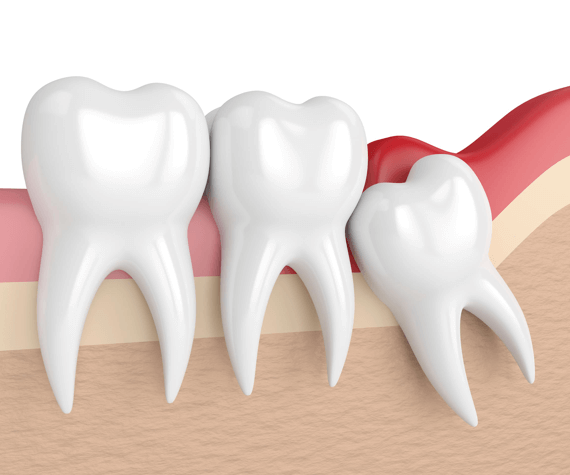Wisdom teeth are the third set of molars. The age that these come through varies widely, but is most commonly from the late teens to early twenties. In fact, this is how they got their nickname of ‘wisdom teeth’, as they come through so much later than our other adult teeth – when we are supposed to be ‘wiser’!
It is most common for people to have four wisdom teeth: two in the upper jaw and two in the lower jaw. It is also possible for people to have none, less than four or occasionally even more.
Problems With Wisdom Teeth
Wisdom teeth can be troublesome because they can become stuck, or impacted, due to a lack of space. They are the most commonly impacted teeth in your mouth. When wisdom teeth do not have enough space to come through they can cause a number of issues in your mouth, including:
- Overcrowding and crooked teeth when a wisdom tooth pushes against the molar next to it.
- Partial eruption when wisdom teeth do not fully come through the gum. This can result in an opening for bacteria to enter the gum and cause infection. Partially erupted teeth are also more prone to tooth decay and gum disease because they are difficult to brush and floss properly.
- Impacted wisdom teeth may cause damage to the molar next to them.
Wisdom Teeth Extraction
If it has fully come through, wisdom tooth extraction is a straight-forward procedure. It involves numbing the gum area and extracting the tooth in the same manner as any other tooth extraction. Effective use of the latest anaesthetics allows the process to be completed without pain or discomfort.
In some cases, removal of an impacted wisdom tooth may require oral surgery. An incision in the gum will be necessary to expose the whole tooth.
Every case is different, and your dentist or oral surgeon are highly qualified and experienced in recommending which course action will achieve the best possible outcome with the least amount of risk and discomfort.
